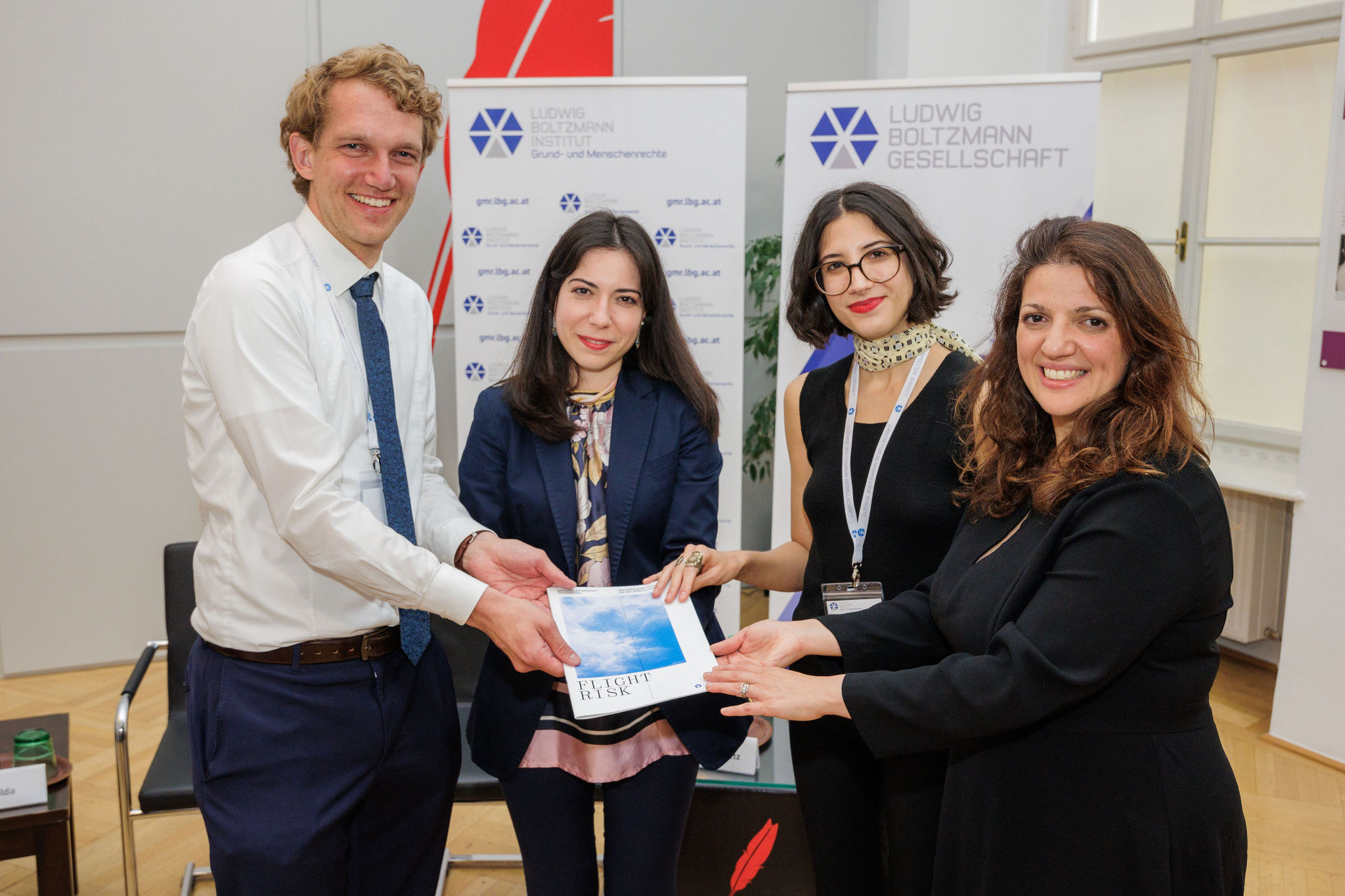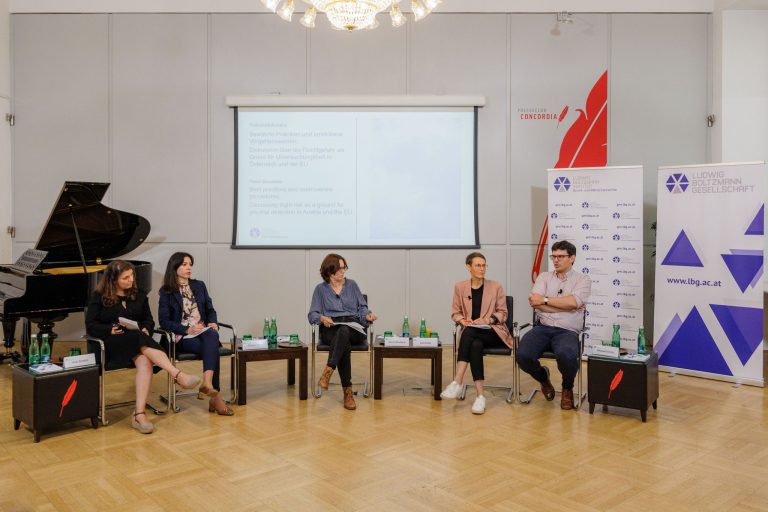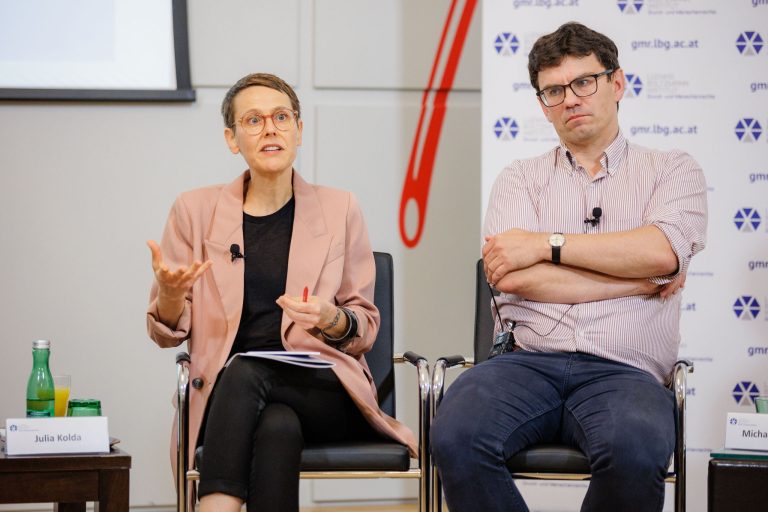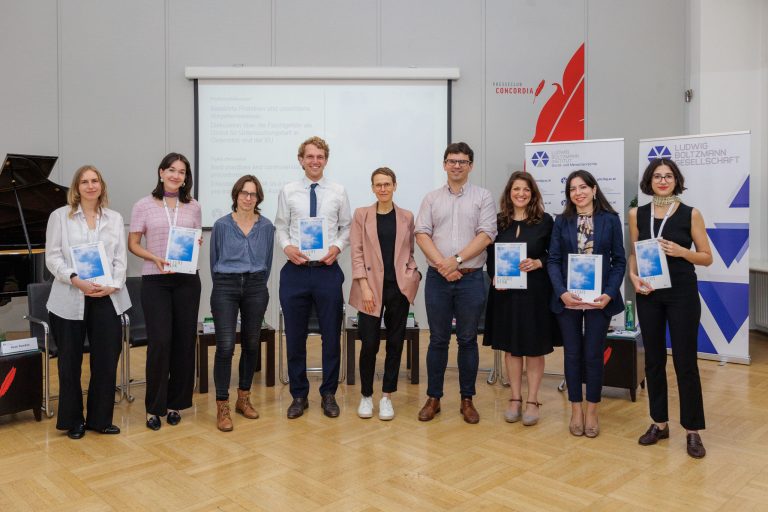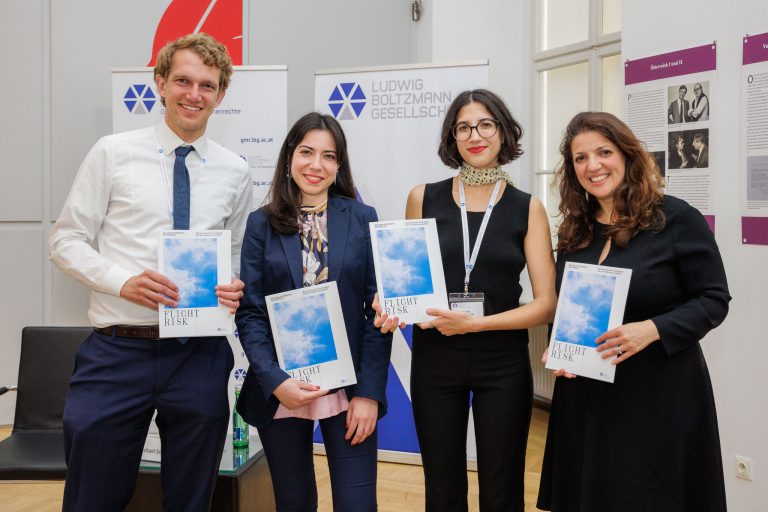Project presentation “Flightrisk: Assessment of the risk of absconding in pre-trial detention”
For two years, research was conducted in five EU member states on the subject of the risk of absconding and pre-trial detention, and the austria-specific results have now been presented.
On Wednesday, 5 June 2024, the Ludwig Boltzmann Institute of Fundamental and Human Rights (LBI-GMR) invited to the presentation of the research results of the project “FLIGHTRISK: Assessing the risk of flight during pre-trial detention” at the Concordia Press Club.
Overcrowding in prisons is a pan-European phenomenon that has been known for years and which favors inhuman and degrading treatment during detention. Reducing pre-trial detention is a sustainable solution to counteract this development. The LBI-GMR project “FLIGHTRISK: Assessing the risk of absconding in pre-trial detention” addressed exactly this issue. Over the past two years, it has examined the most common reason for the imposition of pre-trial detention across the EU in five EU member states (Belgium, Bulgaria, Ireland, Poland and Austria): the risk of flight. The report now presented by the LBI-GMR summarizes the findings of the project for Austria.
It was particularly criticized that people without Austrian citizenship are often assumed to be a flight risk. In 2021, for example, around 64% of people in pre-trial detention were foreign nationals, which points to systemic challenges. Overall, it is also clear that lenient measures are not being used sufficiently. The need to expand training courses to raise awareness among judges and public prosecutors was therefore emphasized. The goal must be a fairer and more individualized assessment. It was also recommended to focus more on alternatives to detention, such as bail, reporting requirements or residence restrictions. Electronically monitored house arrest was mentioned as another option. The imposition of pre-trial detention and thus deprivation of liberty is the harshest of all legal means and should therefore be carefully weighed up. In the course of the presentation, the urgency of making greater use of alternatives and intensifying the individual examination of cases was emphasized in order to avoid imprisonment.
“Our research shows that a more detailed and individualized examination of the risk of absconding is necessary to ensure a fairer application of pre-trial detention,” explains Hauke Benjes-Pitcz, researcher at the LBI-GMR. “We hope that our recommendations will help to improve practice and strengthen the rights of the accused.”
Afterwards, the partner organization “Fair Trials”, the global criminal justice observatory, presented the results of the analysis from the partner countries Belgium, Bulgaria, Ireland and Poland as well as relevant case law from the European Court of Human Rights (HUDOC). The event ended with a panel discussion in which the research findings, recommendations and best practice examples from Austria and the partner countries were discussed together with legal practitioners in the context of HUDOC case law.
